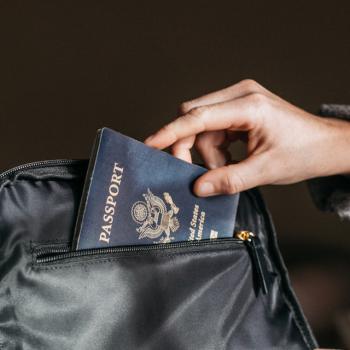A year ago, there was a meme floating around on social media that pictured the backend of a semi-truck trailer. The doors had been flung open and inside was nothing but empty space. The caption read:
“Your shipment of thoughts and prayers has arrived.”
You get the implication, I’m sure. Thoughts and prayers offer no material value. They allocate no food, water, clothing, or medical supplies to help people in need. But does this mean that thoughts and prayers offer no comfort whatsoever?

For example . . .
How is it that those who send thoughts and prayers feel like they’ve helped people in a meaningful way?
And why is it that when we know people are praying for us, or sending us heartfelt messages, that we feel comforted?
Is it a mystery?
Obviously, thoughts and prayers do work on some level, but how they work is not so complicated once we break it down.
Take Christians—or others who believe in a personal God. Overall, Christians believe that by praying they can convince God to intervene and manipulate worldly events to benefit either themselves or those whom they are praying for.
Believing God has your back; that he’s watching over you, can give you the courage to handle the challenges life is throwing your way. And believing you also have the clout to convince God to intercede on behalf of others would certainly make you feel that you have something special to offer people.
As for atheists like myself, we reason prayers are useless, but heartfelt thoughts offered in the spirit of compassion are another matter.
I personally go out of my way to let people know how mindful I am of the importance of our friendship. If my friends are having difficulties, making a person connection, and letting them know that I’m there to help in any way is crucial. Caring for others brings me a lot of satisfaction as does being cared for. Humans have been spiritually nourishing each other through these types of social interactions for thousands of years.
But here’s the rub . . .

What if someone is praying for you and you don’t know it? What if people are thinking about you and are hoping everything is alright with you, but you never hear them utter any words?
Suspend those thoughts in your mind for a moment while considering this speculative question posed by John Locke:
“If a tree falls in the woods, does it make a sound?”
Answering this question is tricky. We’d like to answer in the affirmative, but there’s more to this question to consider. Because on any given day . . .
“. . . most experts agree that we are losing upwards of 80,000 acres of tropical rainforest daily, and significantly degrading another 80,000 acres every day on top of that.”
I have no clue how this stat factors into the number of actual trees being slaughtered every day, but my point is we don’t hear any of these trees falling.
Why is this? Because when a tree falls it produces sound waves, and only when we are standing within earshot of a falling tree do our ears pick up these sound waves, which we then interpret as the sound of a falling tree.
I see no difference between the sound of a tree crashing to the ground in the Amazon or a congregation praying for me in Timbuktu. I don’t hear the tree falling, nor do I hear people praying for me. And if I can’t hear people praying or thinking about me, then their compassion can’t resonate within me.
So, if we really want to help others beseeching the gods is not the best way to go about it. The best way to help is by personally connecting to people, because this is the only way people can see and hear that you actually care.
Even better, we should use whatever recourses we have to get food, clothing, medical supplies—i.e., real stuff—to people who are in need.















